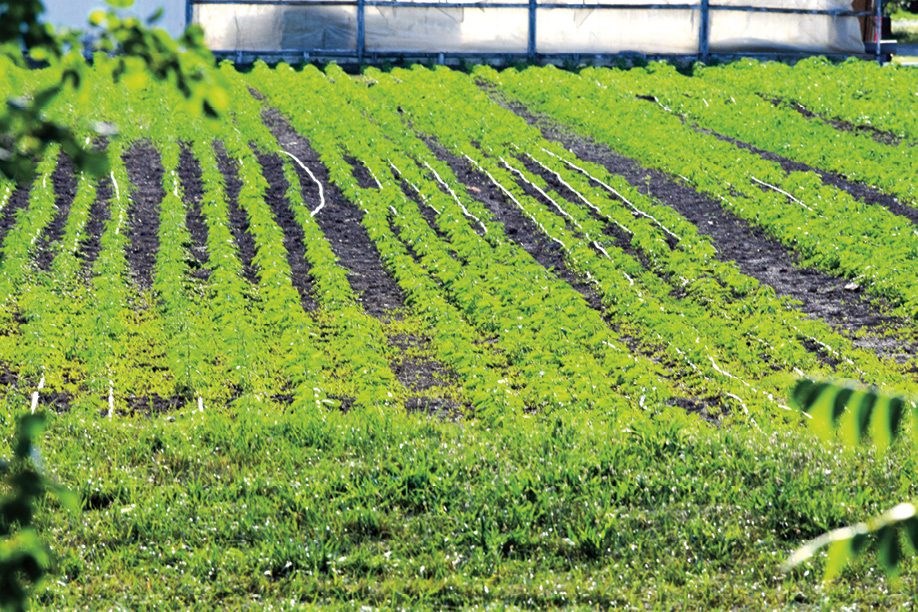Woodstock Biomed violated interim bylaw, claimed cannabis they were growing wasn't cannabis
Chalk one up for the little guy—or, more accurately in this case, gal.
The Town of Pelham went to court and beat the big corporate cats and their high-priced Toronto lawyers. Pelham CAO David Cribbs offered kudos to Town Solicitor Jennifer Stirton, who did “100 percent of the legal work.”
The Mayor was also pleased.
“It was a nice win for the Town," said Marvin Junkin, "and validation for the work that has gone into the Town’s bylaws. Going forward, I am hoping that this industry will work with Town Staff to resolve any problems, as opposed to going to the courts. The bylaws were put in place to protect our residents from unwanted side-effects of cannabis growing, and it is good to know that they are there, if needed.”
At issue was the Town of Pelham’s 2018 Interim Control Bylaw regarding cannabis-related land use.
“The Town is fully prepared to defend its legal rights and the integrity of its Interim Control Bylaw in court,” said CAO Cribbs at the time of the bylaw’s introduction, noting that the Interim Control Bylaw “was established to provide the time necessary to determine how best to juggle the competing needs of the new cannabis industry, with the needs of residents who reasonably expect to be protected from the well- documented nuisances associated with cannabis production.”
Cribbs characterized the interim bylaw as an “appropriate, measured response in these challenging circumstances.”
But in September of 2019, Leviathan Cannabis Group Inc. announced that its wholly owned subsidiary, Woodstock Biomed Inc., had initiated legal proceedings against the Town. The litigation, filed through the Ontario Superior Court of Justice, followed Pelham Town Council's decision to deny Woodstock Biomed an exemption to its Interim Control Bylaw, which placed a one-year moratorium on the building of new cannabis facilities, and the expansion of existing operations.
Leviathan asserted at the time that the bylaw violated Woodstock Biomed’s lawful right to develop its property, located at 770 Foss Road.
“The litigation follows an exhaustive process in which Leviathan worked cooperatively and transparently with Town officials,” read a Leviathan press release in 2019. “In fact, the town's own Department of Community Planning and Development recommended to council that Leviathan's exemption application be approved (with modest conditions). The decision by Leviathan's management team to initiate legal action is being done to protect the interests of loyal shareholders. The company believes it has a strong case before the Ontario Superior Court.”
Alas for Leviathan, the presiding judge, Justice of the Peace Carol Anne Chernish, disagreed, and Pelham prevailed.
Cribbs offered a brief overview of the court case.
“Woodstock BioMed was cultivating plants that they described as ‘hemp,’ which the Town interpreted as being essentially cannabis, which was prohibited by the interim control bylaw. Essentially, that’s the background of the charge. From our position, hemp has the same odour qualities as cannabis, and that's the real reason the Town was regulating. It was an odour concern.”
The defendant, Woodstock Biomed, ignored that request, and operated in defiance of the interim control bylaw
Woodstock Biomed was represented by one of Canada’s top legal firms, Greenspan and Partners LPP, located on King Street in Toronto.
With the conviction, the parties will be returning to court in December to discuss sentencing. There is a 30-day appeal period for Woodstock Biomed.
Rather than gloat over the win, Cribbs offered a simple message.
“The important thing is that the Town exercised its will, that being to control an odour problem, and issued an interim bylaw to give it time to study the issue, and find a fair way to regulate. The defendant, Woodstock Biomed, ignored that request, and operated in defiance of the interim control bylaw.”
Woodstock Biomed did not respond to a request for comment.
Founded in 2011 and based in Markham, Leviathan Natural Products is a publicly-held corporation with market capitalization of approximately $70 million as of April 2022.
Woodstock Biomed Inc. is headquartered in Barrie, and operates as a pharmaceutical company with a special focus on the production of medical cannabis for clients across Canada. The company was acquired by Leviathan Cannabis Group for just under $15 million in June of 2018. Leviathan recently sold its 100 percent interest in Woodstock Biomed Inc. for $5 million.
Woodstock Biomed’s 30-acre property with greenhouse infrastructure in Pelham produces cannabis primarily for pharmaceuticals and horticulturalists, according to the company’s website.



